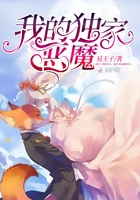But when she heard her mate's last groan she dropped the cub and gathered herself together to spring. Umslopogaas alone stood up to face her, for he only had withdrawn his assegai from the carcass of the lion. She swept on towards the lad, who stood like a stone to meet her. Now she met his spear, it sunk in, it snapped, and down fell Umslopogaas dead or senseless beneath the mass of the lioness. She sprang up, the broken spear standing in her breast, sniffed at Umslopogaas, then, as though she knew that it was he who had robbed her, she seized him by the loins and moocha, and sprang with him over the fence.
"Oh, save him!" cried the girl Nada in bitter woe. And we rushed after the lioness shouting.
For a moment she stood over her dead cubs, Umslopogaas hanging from her mouth, and looked at them as though she wondered; and we hoped that she might let him fall. Then, hearing our cries, she turned and bounded away towards the bush, bearing Umslopogaas in her mouth. We seized our spears and followed; but the ground grew stony, and, search as we would, we could find no trace of Umslopogaas or of the lioness.
They had vanished like a cloud. So we came back, and, ah! my heart was sore, for I loved the lad as though he had indeed been my son. But Iknew that he was dead, and there was an end.
"Where is my brother?" cried Nada when we came back.
"Lost," I answered. "Lost, never to be found again."Then the girl gave a great and bitter cry, and fell to the earth saying, "I would that I were dead with my brother!""Let us be going," said Macropha, my wife.
"Have you no tears to weep for your son?" asked a man of our company.
"What is the use of weeping over the dead? Does it, then, bring them back?" she answered. "Let us be going!"The man thought these words strange, but he did not know that Umslopogaas was not born of Macropha.
Still, we waited in that place a day, thinking that, perhaps, the lioness would return to her den and that, at least, we might kill her.
But she came back no more. So on the next morning we rolled up our blankets and started forward on our journey, sad at heart. In truth, Nada was so weak from grief that she could hardly travel, but I never heard the name of Umslopogaas pass her lips again during that journey.
She buried him in her heart and said nothing. And I too said nothing, but I wondered why it had been brought about that I should save the life of Umslopogaas from the jaws of the Lion of Zulu, that the lioness of the rocks might devour him.
And so the time went on till we reached the kraal where the king's business must be done, and where I and my wife should part.
On the morning after we came to the kraal, having kissed in secret, though in public we looked sullenly on one another, we parted as those part who meet no more, for it was in our thoughts, that we should never see each other's face again, nor, indeed, did we do so. And Idrew Nada aside and spoke to her thus: "We part, my daughter; nor do Iknow when we shall meet again, for the times are troubled and it is for your safety and that of your mother that I rob my eyes of the sight of you. Nada, you will soon be a woman, and you will be fairer than any woman among our people, and it may come about that many great men will seek you in marriage, and, perhaps, that I, your father, shall not be there to choose for you whom you shall wed, according to the custom of our land. But I charge you, as far as may be possible for you to do so, take only a man whom you can love, and be faithful to him alone, for thus shall a woman find happiness."Here I stopped, for the girl took hold of my hand and looked into my face. "Peace, my father," she said, "do not speak to me of marriage, for I will wed no man, now that Umslopogaas is dead because of my foolishness. I will live and die alone, and, oh! may I die quickly, that I may go to seek him whom I love only!""Nay, Nada," I said, "Umslopogaas was your brother, and it is not fitting that you should speak of him thus, even though he is dead.""I know nothing of such matters, my father," she said. "I speak what my heart tells me, and it tells me that I loved Umslopogaas living, and, though he is dead, I shall love him alone to the end. Ah! you think me but a child, yet my heart is large, and it does not lie to me."Now I upbraided the girl no more, because I knew that Umslopogaas was not her brother, but one whom she might have married. Only I marvelled that the voice of nature should speak so truly in her, telling her that which was lawful, even when it seemed to be most unlawful.
"Speak no more of Umslopogaas," I said, "for surely he is dead, and though you cannot forget him, yet speak of him no more, and I pray of you, my daughter, that if we do not meet again, yet you should keep me in your memory, and the love I bear you, and the words which from time to time I have said to you. The world is a thorny wilderness, my daughter, and its thorns are watered with a rain of blood, and we wander in our wretchedness like lost travellers in a mist; nor do Iknow why our feet are set on this wandering. But at last there comes an end, and we die and go hence, none know where, but perhaps where we go the evil may change to the good, and those who were dear to each other on the earth may become yet dearer in the heavens; for I believe that man is not born to perish altogether, but is rather gathered again to the Umkulunkulu who sent him on his journeyings. Therefore keep hope, my daughter, for if these things are not so, at least sleep remains, and sleep is soft, and so farewell."Then we kissed and parted, and I watched Macropha, my wife, and Nada, my daughter, till they melted into the sky, as they walked upon their journey to Swaziland, and was very sad, because, having lost Umslopogaas, he who in after days was named the Slaughterer and the Woodpecker, I must lose them also.















